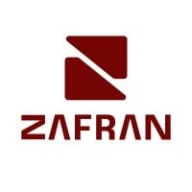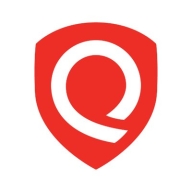


Tenable Nessus and Qualys VMDR are competing products in the vulnerability management space. Based on features, Tenable Nessus marginally outperforms in vulnerability detection accuracy, while Qualys VMDR excels due to its comprehensive service suite including continuous monitoring and cloud-centric applications.
Features: Tenable Nessus is renowned for its accurate vulnerability detection, reliable scans, and minimal system risk during operations. It effectively identifies vulnerabilities across diverse platforms with precision. Qualys VMDR offers a wide range of features including policy compliance, asset management, and continuous vulnerability monitoring, supported by its cloud-oriented architecture and agent-based scalability.
Room for Improvement: Qualys VMDR users mention challenges related to its dependency on the cloud, including issues with asset tracking and report granularity. For Tenable Nessus, suggestions include enhancing reporting capabilities and refining the asset management process. Both tools could benefit from improved integration and ease of use to boost overall responsiveness.
Ease of Deployment and Customer Service: Qualys VMDR provides flexible deployment options for both cloud and hybrid environments but has faced occasional reports of latency in customer service. Despite this, it maintains a diverse feature set with somewhat mixed technical support feedback. In contrast, Tenable Nessus is praised for straightforward on-premises deployment and high-quality customer service, noted for timely support responses.
Pricing and ROI: Qualys VMDR is often viewed as more costly, posing challenges for smaller companies but is still deemed a wise investment due to its functionality and ROI potential. Tenable Nessus is highlighted for competitive pricing and cost efficiency, making it appealing for small to medium enterprises with a positive return on investment when handling business risks and vulnerabilities.
| Product | Market Share (%) |
|---|---|
| Tenable Nessus | 7.3% |
| Qualys VMDR | 6.4% |
| Zafran Security | 1.0% |
| Other | 85.3% |



| Company Size | Count |
|---|---|
| Small Business | 20 |
| Midsize Enterprise | 12 |
| Large Enterprise | 69 |
| Company Size | Count |
|---|---|
| Small Business | 39 |
| Midsize Enterprise | 19 |
| Large Enterprise | 35 |
Zafran Security integrates with existing security tools to identify and mitigate vulnerabilities effectively, proving that most critical vulnerabilities are not exploitable, optimizing threat management.
Zafran Security introduces an innovative operating model for managing security threats and vulnerabilities. By leveraging the threat exposure management platform, it pinpoints and prioritizes exploitable vulnerabilities, reducing risk through immediate remediation. This platform enhances your hybrid cloud security by normalizing vulnerability signals and integrating specific IT context data, such as CVE runtime presence and internet asset reachability, into its analysis. No longer reliant on patch windows, Zafran Security allows you to manage risks actively.
What are the key features of Zafran Security?
What benefits can users expect from Zafran Security?
In industries where security is paramount, such as finance and healthcare, Zafran Security provides invaluable protection by ensuring that only exploitable vulnerabilities are addressed. It allows entities to maintain robust security measures while allocating resources efficiently, fitting seamlessly into existing security strategies.
Vulnerability Management, Detection, and Response (VMDR) is a cornerstone product of the Qualys TruRisk Platform and a global leader in the enterprise-grade vulnerability management (VM) vendor space. With VMDR, enterprises are empowered with visibility and insight into cyber risk exposure - making it easy to prioritize vulnerabilities, assets, or groups of assets based on business risk. Security teams can take action to mitigate risk, helping the business measure their actual risk exposure over time.
Qualys VMDR offers an all-inclusive risk-based vulnerability management solution to prioritize vulnerabilities and assets based on risk and business criticality. VMDR seamlessly integrates with configuration management databases (CMDB), Qualys Patch Management, Custom Assessment and Remediation (CAR), Qualys TotalCloud and other Qualys and non-Qualys solutions to facilitate vulnerability detection and remediation across the entire enterprise.
With VMDR, users are empowered with actionable risk insights that translate vulnerabilities and exploits into optimized remediation actions based on business impact. Qualys customers can now aggregate and orchestrate data from the Qualys Threat Library, 25+ threat intelligence feeds, and third-party security and IT solutions, empowering organizations to measure, communicate, and eliminate risk across on-premises, hybrid, and cloud environments.
Tenable Nessus provides an efficient vulnerability management system with swift deployment and comprehensive scanning capabilities, making it an ideal choice for organizations seeking to enhance their security posture through effective threat detection and mitigation strategies.
Renowned for its top-tier vulnerability detection, Tenable Nessus offers a robust platform that integrates effortlessly across systems, enhancing threat management through automation, real-time monitoring, and customizable scanning options. Its broad asset coverage, including network devices and applications, coupled with ease of deployment, positions it as a go-to option for risk assessment and compliance. Organizations value its extensive reporting features and database, although they suggest enhancements in reporting formats and false positive detection. A more intuitive interface, improved cloud support, and competitive pricing models are sought after to cater to evolving enterprise needs.
What are the key features of Tenable Nessus?In industries such as finance, healthcare, and tech, Tenable Nessus is implemented for scanning internal and external networks, identifying risks, and ensuring data protection compliance. Organizations conduct regular scans to detect security vulnerabilities in servers and databases, leveraging its capabilities to strengthen their security frameworks while managing cloud infrastructures and enterprise networks efficiently.
We monitor all Vulnerability Management reviews to prevent fraudulent reviews and keep review quality high. We do not post reviews by company employees or direct competitors. We validate each review for authenticity via cross-reference with LinkedIn, and personal follow-up with the reviewer when necessary.